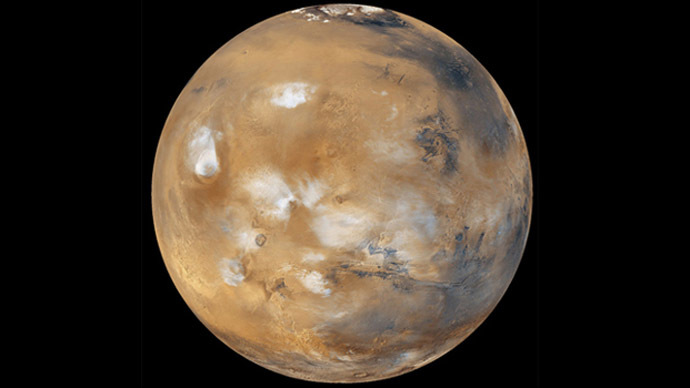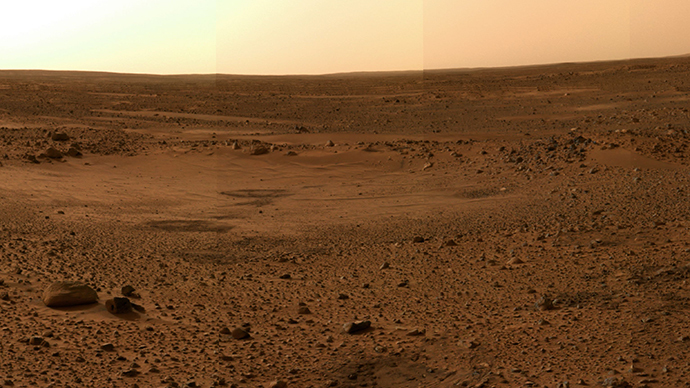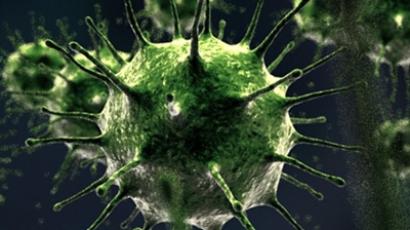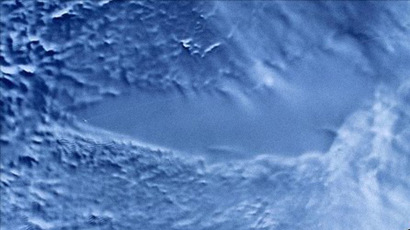Life on Mars? It could be on Earth

Perhaps the greatest irony in the search for alien life was that seekers needed look no further than the mirror. That’s according to a new hypothesis, which posits life actually originated on the Red Planet and was later ferried to Earth by a meteorite.
"The evidence seems to be building that we are actually all
Martians; that life started on Mars and came to Earth on a
rock," Steven Benner, a chemist at the Florida-based
Foundation for Applied Molecular Evolution, said in a news
release on Thursday.
Perhaps even more startling, Benner suggests that the conditions necessary to produce life “may still exist on Mars,” he said.
The theory hinges on the chemical element Molybdenum, which would not have been available on Earth some 3.6 billion years ago when life is believed to have first appeared. An oxidized form of the element, however, might have been abundant enough on Mars at the time to truly animate the universe.
"It’s only when molybdenum becomes highly oxidized that it is able to influence how early life formed," Benner said in a statement. "This form of molybdenum couldn’t have been available on Earth at the time life first began, because 3 billion years ago, the surface of the Earth had very little oxygen, but Mars did. It’s yet another piece of evidence which makes it more likely life came to Earth on a Martian meteorite, rather than starting on this planet."
According to the theory, for the three crucial molecular components of living organisms – RNA, DNA and proteins – to arise from the soup of organic molecules which once existed on earth, an elemental breath of life was in order.
Simply applying heat or light to the pre-biotic soup of organic
chemicals would have turned it into a tarlike substance.

Benner calls this phenomenon the tar paradox, prompting the question: how could complex biopolymers like DNA that are fundamental to biological structure and function have come from organic materials present on the Earth at life’s inception?
That’s where boron and Molybdenum come in.
"Certain elements seem able to control the propensity of organic materials to turn into tar, particularly boron and molybdenum, so we believe that minerals containing both were fundamental to life first starting," Benner said.
The problem: Earth was completely covered by water when life first emerged, which would have made it incredibly difficult for boron to form in sufficiently high qualities, as it is only found in extremely dry places. Incidentally, water is also corrosive to RNA, which most researchers believe predated DNA.
But while Earth at the time might have been a less hospitable place, Mars may have been a prime spot for the necessary kick starters for life to develop.
Recent analysis of a Martian meteorite showed the presence of molybdenum, as well as boron, either of which could have helped protect RNA from the corrosive effects of water.
During those violent cosmic times, both the third and fourth rocks from the sun were coming under regular bombardment by comets and asteroids. As the Red Planet did battle during this violent era in our Solar System, Martian rubble was most likely cast off into space and eventually snatched up by Earth’s gravity. Martian microbe stowaways might have hitched a ride on those rocks and taken the indispensable interplanetary journey.
And while no indigenous Red Planet organisms have ever been discovered, Benner says our ancient microbial ancestors’ theoretical move to bluer pastures was likely for the best.
"It’s lucky that we ended up here nevertheless, as certainly Earth has been the better of the two planets for sustaining life," Benner said. "If our hypothetical Martian ancestors had remained on Mars, there might not have been a story to tell."














